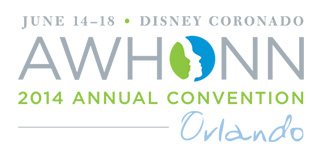The High Risk Postpartum Transitional Program: A Multidisciplinary Approach To Caring For Postpartum Woman With Hypertensive Disease
Title: The High Risk Postpartum Transitional Program: A Multidisciplinary Approach To Caring For Postpartum Woman With Hypertensive Disease
- Identify factors that predispose woman with pregnancy related hypertensive disease to sustained hypertension and future cardiovascular disease
- Describe the multidisciplinary plan of care for women with pregnancy related hypertensive disease, including inpatient surveillance, resource provision, education and post discharge follow up.
- Identify impact of program and implications for further study and research.
Proposed change: A multidisciplinary team developed a standardized clinical protocol which addressed surveillance, treatment, education, and follow up across the continuum from identification through delivery and beyond discharge. Identified patients receive education about their disease, future health implications and lifestyle modification as well as medication education if appropriate. Home care BP and symptom monitoring is arranged, and an appointment is given to return within two weeks to the High Risk Postpartum Transitional Clinic. A follow up phone call is made prior to the appointment as reinforcement.
Implementation, outcomes and evaluation: Overall readmission rates for patients involved in the High Risk Postpartum Transitional Program have declined since it was initiated in the summer of 2012. Recently we initiated follow up telephone calls with the goal of bolstering the current clinic show rate of 45 – 60%. Our multidisciplinary Unit Based Clinical Leadership is exploring additional strategies which will enable us to serve more women through partnerships with community outreach programs and additional home care agencies.
Implications for nursing practice: As primary coordinators of postpartum care, the nurses’ role is a critical factor in its development, implementation and success. Postpartum clinical nurses educate these women about their disease and its impact on future health and consult with other professional disciplines like social work and the unit based clinical pharmacist, to provide additional resources. Unit based Clinical Resource Coordinator nurses arrange post discharge home care nursing services for blood pressure and symptom monitoring and Women’s Health Nurse Practitioners offer inpatient support and a mechanism for home care nurses to triage identified concerns and reinforce education. This program offers nursing research opportunities to study the impact of nursing interventions on postpartum morbidities like hypertensive disease
Keywords: Postpartum, preeclampsia, hypertension, transitions, programs
